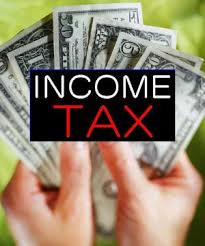I’ve said this before but it’s worth repeating, because I’ve heard so many ‘experts’ recently ascribing Australia’s impossibly high land prices simply to high demand and the inadequate supply of land.
Wrong! Wonky economists press that view – and most of us fall for it – because the real reason is something people don’t usually ‘get’.
Here’s the real explanation.
When a valuer values a commercial property, he or she will NOT simply try to sum the value of the land plus buildings but will capitalise its net annual market rental. We see vacant residential land selling and pay attention to the prices attained, but we don’t realise the process is fundamentally the same. Nobody realises that block of land selling for $500,000 probably has a net rental value of something like $20,000 per annum, and a current yield of about 4%. So, capitalising $20,000 at 4% (viz, $20,000 x 100/4), gives you a value of $500,000 for the parcel. People, including economists, don’t see and understand these sums behind the $500,000 price for a piece of land: they’re ignorant of them, so it must be “supply and demand”.
If governments were to capture (say) $10,000 of this $20,000 annual rent by way of council rates and/or state land tax, the net rent remaining in private hands is then only $10,000 pa., and if we capitalise this at 4%, we now only get $10,000 x 100/4, or $250,000 as the price of the same piece of land. [!]
Therefore, the amount a government gets of this publicly-generated land rent has much more to do with the price of residential land than the current level of supply and demand of land. Supply and demand and zonings are important, of course, but are secondary factors. However, economists are wed only to supply and demand, and they fail to see the critical factor in land price is how much of the publicly-generated land rent we allow to be privatised.
High land prices signify inadequate public capture of revenues from land, pure and simple!
If you understand this, you’ll be able to put it as an alternative and more correct approach to the superficial “supply/demand” argument for Australia’s bubble land prices when it’s wrongly put forward.
For which block of land would you pay more? –>







